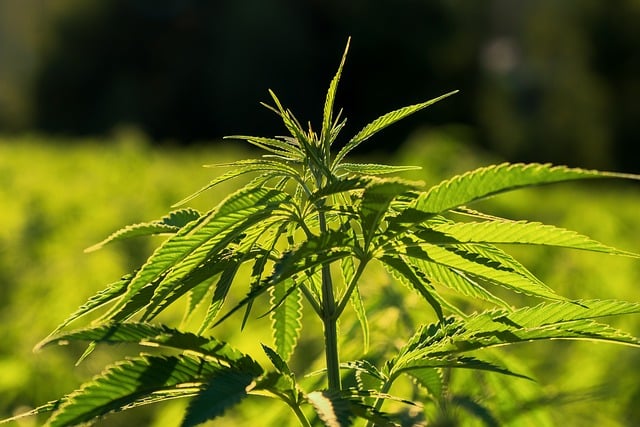By ANGELIQUE GINGRAS
ANNAPOLIS, Md – Some potential cannabis businesses are criticizing the tight turnaround to obtain new licenses to grow, process or distribute marijuana, after the Maryland Cannabis Administration announced applications will open on Nov. 13, with distribution set to start just six weeks later on Jan. 1.
The bill that legalized cannabis for individuals 21 and older in Maryland that took effect July 1 created a timeline for recreational use, including a two-round licensing process for new cannabis businesses that will initially prioritize applicants who qualify for social equity.
The application will close Dec. 13, giving the administration less than a month to review applications, enter them in a lottery, and begin distribution before the end of this year.
Caroline County resident LaKia Harris-Pierce is applying as a social equity applicant and has been advocating for cannabis reform for over a decade.
“I think their timeline is off because they have a prediction about how many people are applying,” said Harris-Pierce, who holds a master’s degree in cannabis science from the University of Maryland, Baltimore. “The application should have opened up from Oct. 1 to Nov. 1, and that would have given the MCA time to go through them because this is going to be a rushed job.”
While the recreational use of cannabis has been legal since July 1, only businesses that had licenses before that time under the medical use provisions could operate. These new recreational use licenses will serve social equity applicants, with Maryland the first state to reserve the first round of cannabis licenses for those businesses.
The MCA opened a social equity verification portal on Sept. 8 for applicants to ensure they qualify for this round before they apply, which Harris-Pierce is currently working on. To qualify, an applicant must have at least 65% ownership in their business and meet at least one of the following criteria:
-
Have lived in a disproportionately impacted area for at least five of the last 10 years
-
Attended a public school in a disproportionately impacted area for at least five years
-
Spent at least two years at a four-year institution of higher education in Maryland where at least 40% of attendees are eligible for a Pell Grant.
LaWann Stribling, an aspiring cannabis business owner who only recently qualified as a social equity applicant, explains that social equity goes beyond where you live.
“I have two children whose fathers suffered from the war on drugs,” Stribling said. “No one is taking into account any families who have suffered that way, or families who have been incarcerated but didn’t live in a disenfranchised area.”
Following the distribution of round 1 licenses, the MCA will conduct a disparity study which will determine the criteria for round 2 applicants, set to launch in the spring of 2024.
Jake Van Wingerden, founder and president of SunMed Growers, has been a cannabis business licensee since 2016. He said that while the licensing has set dates for a reason, there will not be enough time between the first and second rounds for these applicants to get established and see how social equity is addressed.
“To actually think that any cannabis operator can get started in months is not realistic,” he said.
Despite these hesitations, Del. Jheanelle Wilkins, D-Montgomery, who as chair of the Legislative Black Caucus prioritized adult-use cannabis in the bill and helped assure access for social equity applicants, says the licensing process is right on schedule.
“The first step is putting out the information so that only qualified individuals take out the time and the effort to apply,” she said. “(It’s) a perfect timeline to make sure that the applicants are able to have a fair process and that the application period is open as required by law with the ability to award them by Jan. 1.”
Wilkins added: “We have worked to leave no stone unturned in terms of providing as much support as we can as a state, and making sure that the licenses are distributed in an equitable way that are reflective of repairing past harms and making sure that we’re including as many people as possible, so I’m really proud of the bill.”
For Harris-Pierce, she is not in this business to make money, but because she wants to be one of the first Black female veteran-owned cannabis dispensaries in the state.





Recent Comments